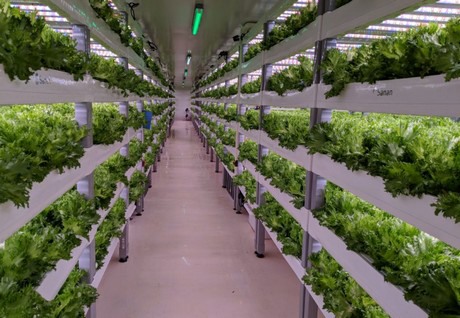Rising populations and worsening weather conditions due to climate change make it difficult to produce enough healthy and fresh food. A contribution to solving this problem could be provided by so-called vertical agriculture. Here, the vegetables and fruits are grown on floors one above the other. This system requires neither direct sunlight nor farmland, as the plants grow in nutrient solutions under artificial light or daylight. A team of scientists from the University of Göttingen has investigated the acceptance of vertical cultivation systems. The results have been published in the journal Sustainability.

Researchers from the Department of Marketing for Food and Agricultural Products surveyed around 500 consumers from Germany on various vertical farming systems. The rating was for a refrigerator-sized appliance for home use, a medium-sized greenhouse in supermarkets, and a vertical farm that can be built into former industrial buildings. For 81 percent of consumers, environmental friendliness is an important issue.
Only seven percent had already heard of vertical agriculture. Interestingly enough, half of the participants would buy fresh products from vertical farming systems. It also shows that the larger the system, the higher the likelihood that it will be considered sustainable. The small systems for household use were rated worse overall.
Focus on sustainability
"Our results show that the development of vertical farming systems should focus in particular on sustainability. Only systems that are truly environmentally friendly will convince consumers," says Kristin Jürkenbeck, PhD student and lead author of the study. "The topic of sustainability is becoming increasingly important for consumers in all areas of life, as illustrated by the public discussions. This must not be ignored by the big companies," says Prof. Dr. med. Achim Spiller, Head of the Marketing Group for Food and Agricultural Products.
